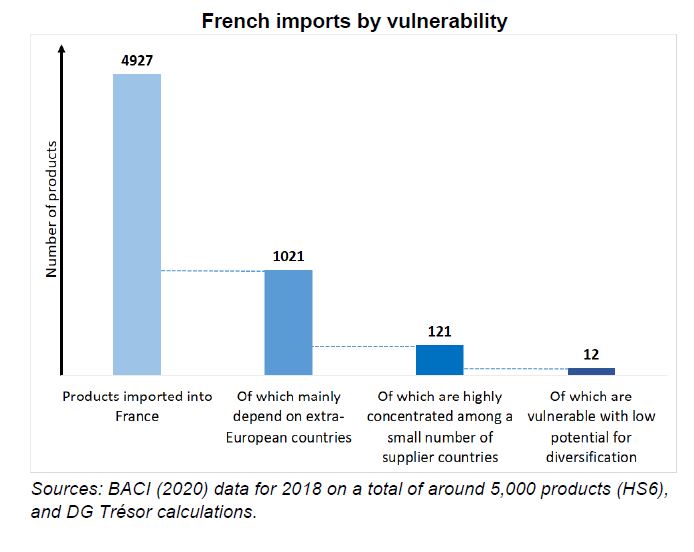Vulnerability of French and European imports
Our economy needs products and raw materials of foreign origin, especially for our industrial production, which can lead to vulnerabilities in the event of supply disruptions. However, an analysis of the concentration of French imports and their potential diversification reveals a limited number of vulnerable products. Security strategies at the level of companies, States and the European Union can be put in place.
The COVID-19 crisis has revived the debate on the vulnerability of global value chains, particularly the dependence on imports for domestic production.
Over the past 20 years, France has gradually integrated itself into global value chains: its manufacturing production directly uses nearly 40% foreign inputs, more than half of which come from European countries. This phenomenon is common to all European countries and France is less dependent than Germany on foreign inputs.
In order to identify which goods are "vulnerable", we analysed the extra-European imports of about 5,000 product categories, taking into account (1) the concentration of imports of each product based on the number of non-EU supplier countries, and (2) the centrality of the product, i.e. whether alternative sources exist in other countries.
According to this methodology, the vulnerability of French imports from outside the EU appears to be low: we counted 121 products for which imports appear to be concentrated (see chart on this page), including chemicals and pharmaceuticals, metals and some capital goods (e.g. LED lamps, machine tools, accumulators, etc.). Among these concentrated products, we identified 12 vulnerable products, i.e. with low diversification potential. France has a lower number of vulnerable products than its main European neighbours. For a quarter of these products, the main non-European supplier is China.
The identification of these vulnerabilities should not obscure the advantages of sourcing from abroad, both in terms of economic efficiency and security of supply, including in times of crisis.
